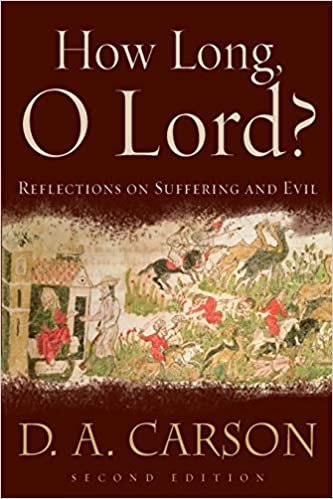A Brief Book Summary from Books At a Glance
By Benjamin J. Montoya
Introduction
When some PhD students begin their degrees, they tackle obscure topics that no one else does. What did D.A. Carson do at the University of Cambridge? He tackled one of the most difficult topics in the Bible, how to understand God’s sovereignty and human responsibility. That is no small task. Although this book is not that exact book, this book draws from that earlier book. This book is among the important biblical-theological and practical books on the topic of suffering and evil. Life usually does not go on too long before we are faced with suffering and evil and, as such, we will find ourselves needing the hope of Christ throughout these times.
Table of Contents
Part 1 Thinking about Suffering and Evil
Chapter 1 First Steps
Chapter 2 False Steps
Part 2 Parts of the Puzzle: Biblical Themes for Suffering People
Chapter 3 The Price of Sin
Chapter 4 Social Evils, Poverty, War, Natural Disasters
Chapter 5 The Suffering People of God
Chapter 6 Curses and Holy Wars—and Hell
Chapter 7 Illness, Death, Bereavement
Chapter 8 From the Vantage of the End
Chapter 9 Job: Mystery and Faith
Chapter 10 The Suffering of God
Part 3 Glimpses of the Whole Puzzle: Evil and Suffering in the World of a Good and Sovereign God
Chapter 11 The Mystery of Providence
Chapter 12 The Comfort Providence: Learning to Trust
Chapter 13 Some Pastoral Reflections
Summary
Part 1: Thinking about Suffering and Evil
Chapter 1: First Steps
Suffering and evil are things that will happen in this life. For example, there have been people who were mowing their lawn, and they just happen to look over to their neighbor’s yard to see their neighbor’s son get run over by a dump-truck. Why do these things happen? And, to focus the question more carefully for our discussion, if God is all-powerful and all good, how can he ever permit such evil things to happen? As Christians, we must think through these issues. We will face struggles in life, and we will encounter those who do. We need to be prepared to respond in discipleship contexts.
Chapter 2: False Steps
Unfortunately, even Christians can make false steps in their understanding of why suffering and evil occur. Some of these false steps arise from ignorance and arrogance. Saying things like, “These kinds of things should only happen in black neighborhoods, or the slums, or elsewhere—not in my nice, white backyard.” That is a very crass way of putting it, no doubt, but it can be tempting to think like that.
There are other kinds of false steps that arise from people who have an unbiblical worldview. For example, atheists must conclude that our very conception of a term like “evil” is a problem, because evolution accounts for what happens in this world. This worldview offers no solution to the problem of evil, because it has no place for it altogether. Obviously, Christians will likely not be attracted to this viewpoint for this very reason.
[To continue reading this summary, please see below....]The remainder of this article is premium content. Become a member to continue reading.
Already have an account? Sign In
